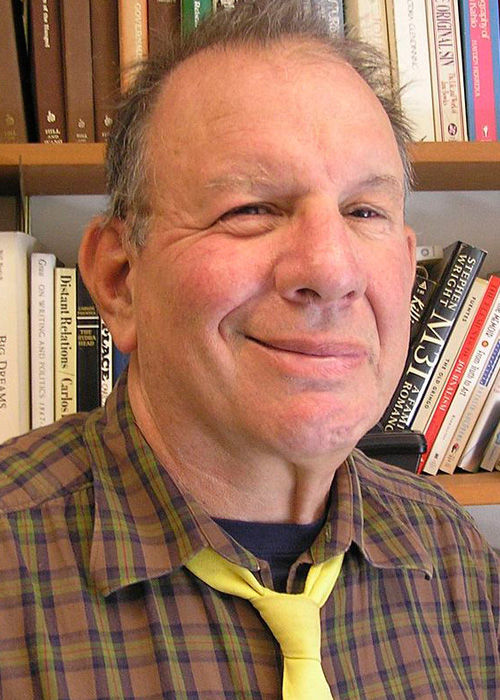A long view of the pot prohibition: interview with John Hudak, author of Marijuana: A Short History
Not long ago, I heard author John Hudak talk about the past, present and future of marijuana on Terry Gross’s radio show, “Fresh Air.” Then and there, I decided to read his book, “Marijuana: A Short History.” I’m happy I did, though I wondered even before I received my review copy in the mail, if Hudak would actually deliver what the subtitle promises in 200-pages. After all, scholars have written books three times as long as his and have failed to say everything that needs to be said on the subject.
Once I began to read “Marijuana: A Short History,” my doubts vanished. In 13 concise chapters Hudak examines the key issues. From beginning to end he also stays balanced.
“Most Americans and many outside the country look at marijuana prohibition and see it as a failed policy,” Hudak writes in the last chapter. He adds, “Many observers are skeptical that full scale legalization is the right response.”
While he uses generic-sounding phrases like “many observers” and “most Americans,” he doesn’t hide behind them. Indeed, he talks candidly about the “failed drug war.” Then, too, he pulls no punches when he says that, “the state of American law is absolutely untenable and is inconsistent with American principles of fairness and equal treatment.”
Hudak suggests that, “full-scale legislation” by state governments “may be the best precondition for creating the laboratories of democracy where workable marijuana policy will be tested.”
The phrase, “laboratories of democracy,” struck me and then stuck with me. Eager for a one-on-one conversation with the author, I called him at his office and interviewed him about marijuana — that’s the word he prefers over all others. Not pot, grass or cannabis for him.
A senior fellow at the Brookings Institute — a conservative think-tank in Washington D.C. — Hudak told me that while he has used marijuana in the past, he doesn’t use it now. If he did consume it now and it became widely known, his work might not be respected, he explained.
So, he’s cautious and also acutely aware of what he calls the “hypocrisy of perception.”
“I can go to a bar and have a martini and that won’t raise eyebrows,” he said. “But if I were to tell people that I get stoned some of them would dismiss my work.” No doubt that’s true.
Hudak is not the only marijuana expert to steer clear of marijuana cigarettes and cookies, though increasingly pot journalists have come out of the closet.
Peter Hecht, a longtime marijuana columnist for the Sacramento Bee and the author of “Weed Land” (2014), has never said whether or not he uses pot. Maybe he, too, feels he’d be discredited if word got out that he consumed cannabis in some shape or form. So far, he’s at the back of the cannabis closet.
Hudak isn’t a carbon copy of Hecht. His expertise is pot policy, not police raids on marijuana gardens (Hecht’s specialty). Moreover, unlike Hecht, who focuses on northern California, Hudak looks at the whole country. He’s definitely not in the bubble that surrounds many who live in or around the Emerald Triangle, the pot capital of the world.
In Virginia, where Hudak lives, he observes his friends and neighbors and concludes that, “they care more about jobs, access to education and the middle east” than they do about cannabis. He adds that in his home state, citizens are “less passionate about pot than citizens in the Emerald Triangle.”
Like many policy wonks who follow the story of marijuana, and like many inside the industry itself, Hudak wonders what new laws might emerge from the Trump administration and the office of the new attorney general, Jefferson Beauregard “Jeff” Sessions III, who served as an U.S. senator from 1996 until 2016.
As a U.S. Attorney in Alabama in the 1980s, Sessions said he thought Ku Klux Klan members “were OK” until he “found out they smoked pot.” Sessions has also called marijuana reform in the U.S. a “tragic mistake.”
Not surprisingly, Hudak isn’t a fan. “As a federal prosecutor Sessions sought longer prison terms for people of color just because they were people of color,” Hudak tells me.
He adds, “Sessions is an avid Prohibitionist and a potential threat to the whole marijuana industry. He can’t raid every single marijuana business in California, but he can wreak havoc.“
To pro-marijuana optimists who think that Sessions is a “state’s rights person who will leave California alone” he says think again and think clearly.
“I can’t imagine Trump will be better than Obama,” Hudak says. Still, he’s guardedly hopeful about the future of legal marijuana.
“By the end of 2016 more people had used marijuana than in 1990,” he says. “The oldest America are those most strongly against it, while younger people, including Millennials, are most strongly for it. The least tolerant people will be replaced by the most tolerant.”
Perhaps time is on the side of marijuana.
Still, full legalization nationwide might take a decade or more, especially with Sessions as Attorney General.
For now, we have Hudak’s readable, affordable ($14.95), and quotable history of marijuana that’s available from the Brookings Institution Press www.brookings.edu/press. I recommend it for teachers, students, parents, police officers and government officials. For those who want the most recent information from Hudak, it’s available on the institution’s website, www.brookings.edu/topic/marijuana-policy.
Jonah Raskin, a professor emeritus at Sonoma State University, is the author of Marijuanaland, Dispatches from an American War, published in French as well as English, and shares story credit for the feature length pot film Homegrown.
46.5
F
Healdsburg
April 19, 2025








